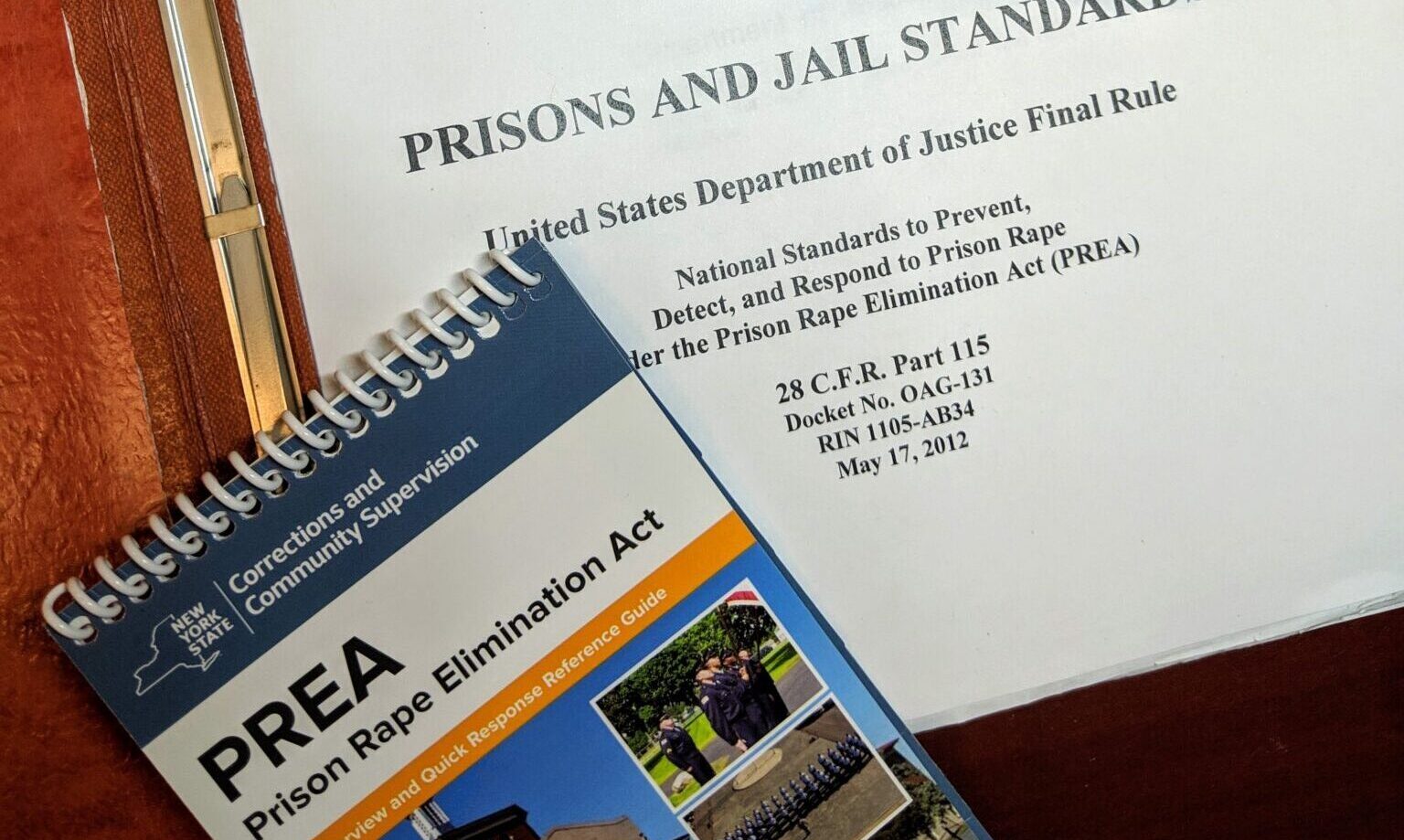Read this article and more at Filtermag.org
The experience of being gay in prison has changed a lot since I was first incarcerated almost 30 years ago. Back then I remember very few prisoners who were open about being anything other than heterosexual. Every once in a while someone flamboyant would rise up and refuse to live in hiding, and usually it wasn’t long before they were taken into administrative protective custody, AKA solitary confinement.
In 1997 I was at Hardeman County Correctional Facility, a men’s prison in Whiteville, Tennessee. One day my neighbor Starr walked out into the hall with a boombox, pushed Play, climbed up on a table and began lip-syncing to “It’s Raining Men.” This was the first time I saw anyone do anything openly gay in prison.
When Starr was performing, wearing a long tie-dyed T-shirt with the bottom cut into strips like a fringed skirt, lips painted with Kool-Aid packets, she referred to herself as “she” and so did everyone else. I never asked if that was how she identified all the time, or what pronouns would have been the right ones. I was still in the closet back then, and I was scared to be associated with her. Prisoners and officers alike cheered and clapped and when she was dancing, but she was still taken to protective custody a few months later. I never saw her again.
Eventually, I started to meet other men who were gay and, while not exactly open about it, would tell you if they were pretty sure you were gay yourself. They lived quietly, and seemed to get by okay. I joined that crowd—the quietly gay crowd—and stayed there for years because it allowed me to live in relative peace and avoid being sexually assaulted. It wasn’t actually identifying as gay that mattered—just being identified as gay by others.
Often I’d be thinking about coming out of the closet, only to have something like that send me right back in.
When Starr was taken away it scared the bejesus out of me. Often I’d be thinking about coming out of the closet, only to have something like that send me right back in. Around 1999 I was walking to chow when someone ran up to the guy in front of me and stabbed him in the neck. He kept stabbing him, splattering blood on my prison uniform and across my boots. As he was cuffed and dragged away he was still screaming at his victim, Don’t mess with my property, you motherfucker. And that fate is what scared me about coming out—not being stabbed necessarily, but being someone’s property.
Many men in prison become the property of another. Younger, clean-shaven men are scouted right as they step off the chain bus, by shot-callers who call dibs on them like livestock. Often I saw young men who’d been claimed in this manner go to their cell and be greeted by someone brandishing a shank, saying they’d be back to rape them later. This was never the person who’d claimed the young man as property, but an associate. The person who had claimed them would be the one who showed up next, offering protection in exchange for sexual favors.
For many newbies who find themselves in that position, performing coerced sex acts for one man is preferable to a life of being constantly brutalized by a multitude of men who also take your commissary items. Whether the predator or victim in this scenario is gay or not is irrelevant. Regardless of whether someone “bottoms” consensually or is raped into eventually becoming someone’s property, in prison they’re considered gay. It doesn’t matter how they actually identify. This is necessary so that anyone who “tops” can still be considered straight, no matter how they actually identify.
Though I’ve been openly gay for a long time, each year at my PREA hearing I identify myself as heterosexual.
In 2012 the Prison Rape Elimination Act (PREA) took effect. Among other changes, we all have annual classification hearings in which we’re asked a handful of questions about how we identify and whether we’ve been sexually assaulted. Though I’ve been openly gay for a very long time now, each year during my PREA hearing I identify myself as heterosexual.
PREA sorts people into three categories: “predator,” “victim” and “neutral.” Someone who is heterosexual—on paper, at least—gets to be “neutral.” Whereas someone whose paperwork shows them to be anything other than heterosexual is much more likely to be classified as “victim,” even if they’ve never been assaulted.
Compared to heterosexual prisoners, LGBTQ+ folks are many times more likely to be assaulted—not just by other prisoners, but also by staff. Many who’ve been assaulted don’t report it, and so it’s a good thing that however you need to answer they take your word for it, even if there’s no record in the system. But a problem that arises with this system is that a “victim” and a “predator” can never be housed together. This probably sounds like a good thing, and in many cases it is. But labels can be misleading.
Many “violent sexual predators” are LGBTQ+ folks classified that way because they were sex workers living with HIV, or teenagers who’d had consensual sex with other teenagers. In my experience LGBTQ+ people in prison are just as often classified as “predator” as they are “victim.”
In the LGBTQ+ community at South Central Correctional Facility where I’m currently housed, just about everybody has been sorted into one category or the other. In real life they might be friends who would be perfectly safe living with each other, and probably safer living with any random LGBTQ+ “victim” or “predator” than any of the random heterosexuals they have to be assigned with instead.
